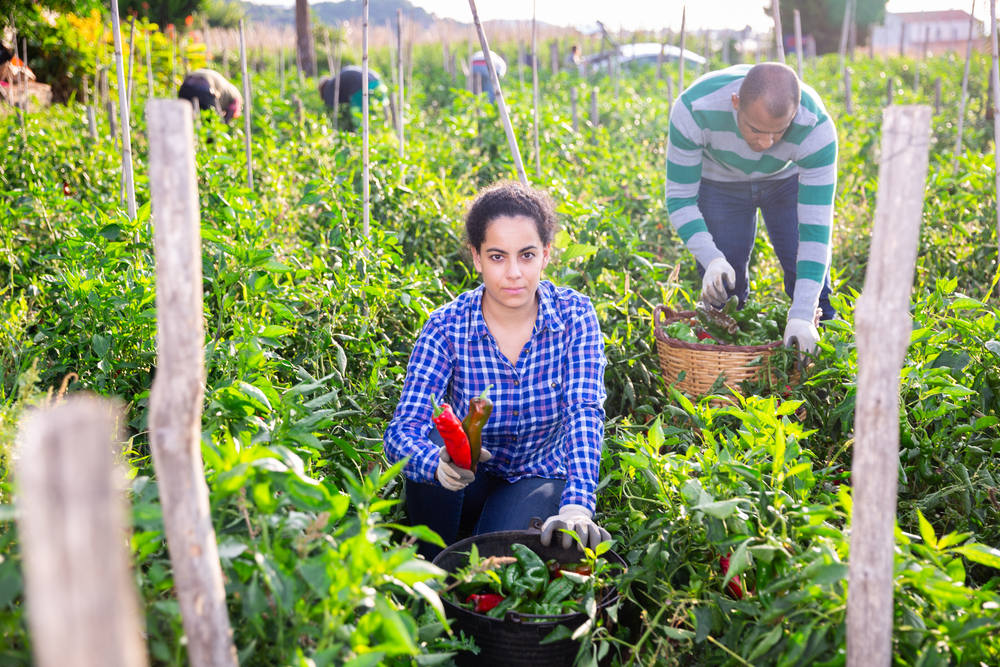Participants stressed that farmer organizations are key for the competitiveness of organic production.

San Jose, 20 July 2021 (IICA) – Organic farming will continue to grow in Latin America and the Caribbean insofar as an exchange of successful experiences exists in the region.
Organic farming is an agricultural development model that boasts an innovative approach and huge potential due to being socially, commercially and environmentally sustainable and contributing to gender and youth inclusion in farming.
These were some of the conclusions reached at the “Cooperativism in Organic Production” Forum, organized by the Inter-American Commission for Organic Agriculture (ICOA) within the framework of the agreement signed between the Inter-American Institute for Cooperation on Agriculture (IICA), the Brazilian municipality of Santa Clara do Sul and the Peruvian region of Huancavelica.
The agreement, which recognizes the role of subnational governments in promoting this type of agriculture, has made important progress in terms of collaboration, leading up to the first forum to exchange the successful experiences of other countries.
The event was attended by authorities from ICOA’s Board of Directors and IICA, as well as representatives from the municipality of Santa Clara do Sul and the regional government of Huancavelica.
Graciela Lacaze, Executive Secretary of ICOA, underscored the fact that without strong institutional and governmental integration, organic production could not reach its full potential, and this is precisely the objective of the IICA-Santa Clara do Sul-Huancavelica agreement.
For her part, Verónica Santillán, Director of Organic Production at Ecuador’s AGROCALIDAD, stated that “cooperativism in organic production is a great example and a strong inspiration to continue working”.
Paulo Cezar Kohlrausch, mayor of Santa Clara do Sul, expressed that the municipality “is committed to organic production as it preserves the health of the producer, the environment and the consumer”.
In turn, Maciste Alejandro Díaz Abad, governor of Huancavelica, highlighted that, “the recently signed agreement and this event position the potential of Huancavelica in terms of organic production”.
The forum included a presentation of the success stories of cooperatives in Latin America and Spain. Alexandra Rodríguez from CONQUITO, Ecuador’s Economic Promotion Agency, shared the experience of the cooperative in promoting the productive and socioeconomic development of the Metropolitan District of Quito.
Ana Laura Sayago from Argentina’s Coopsol Cooperative, presented on “added value and innovation in the organic apiculture chain”. Nelson Martínez from the cooperative “25 de Julio” in Honduras, shared his experience in the organic production of coffee and avocado.
Karen Carillo and Joel Carillo from Pacayal—the corporation of small coffee and horticultural producers in Honduras—spoke on gender and youth inclusion.
The closing remarks were given by Juan Antonio Caballero Jiménez from Los Pedroches Oil Cooperative in Spain, who spoke on how to diversify production and differentiate oneself within the world of cooperativism.

The participants stressed that farmer organizations are key for the competitiveness of organic production.
The agreement signed in March establishes that IICA, through its delegations in Argentina, Brazil and Peru and with the cooperation of the Inter-American Commission for Organic Agriculture, would support Huancavelica and Santa Clara do Sul in identifying success stories and would coordinate and facilitate the technical support both governments need to develop organic farming.
The municipality of Santa Clara do Sul is implementing the program “Santa Clara Mais Saudável” to promote a culture of production and consumption of healthy, pesticide-free foods. For its part, the Andean country’s regional government is implementing the program “Organic Region of Huancavelica”, with the aim to increase Peru’s surface area under organic production, decrease the poverty rate, increase farmer income and improve the quality of life of the communities in the region.
More information:
Institutional Communication Division
comunicacion.institucional@iica.int











